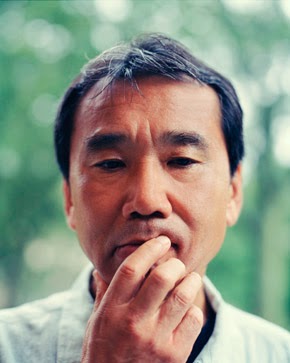Latest column for the Yomiuri / 3:AM on Miho and J-Pop in the USA

.jpg) My latest column for the Daily Yomiuri, and co-published by 3:AM magazine in the UK, features interviews with Miho Hatori, formerly of Cibo Matto, and Reni-chan, a 'maid cafe' performer, both of whom have been transplanted from Tokyo to New York to make it in America. It's a little riff on the status of Japanese music performers in the US, via AKB48, of course.
My latest column for the Daily Yomiuri, and co-published by 3:AM magazine in the UK, features interviews with Miho Hatori, formerly of Cibo Matto, and Reni-chan, a 'maid cafe' performer, both of whom have been transplanted from Tokyo to New York to make it in America. It's a little riff on the status of Japanese music performers in the US, via AKB48, of course. SOFT POWER, HARD TRUTHS / Japan's music-makers in America
When Japanese pop idol group AKB48, a heavily produced amateur team of late-teen and twenty-something dancers and singers, took to the stage in Manhattan's aging Webster Hall club last month, we all clapped. These were cute young Japanese girls making their debut in the heart of the West's media maw. Why not welcome them?
But the truth was, as always, more complicated. AKB48 flew to New York to make a splash in the world's biggest media pond. They had already sung and danced to devoted American otaku types at the New York Anime Festival. They filmed a music video in Central Park. A few New York media outlets promoted them heavily.
But during their 5 p.m. performance on a Sunday in the East Village, they were hardly noticed by most New Yorkers.
Although today's Asian pop music scene in America is led by the Japanese, there is a perception in the industry that it all depends on anime soundtracks.
That perception must change.
Last week in New York, I had tea with Miho Hatori, formerly part of the duo Cibo Matto, which was successful in both the United States and Japan. "I came to New York in 1993 and never looked back," Hatori said, sipping from her mug of hot green tea. "It's the most chaotic city in the world, and I love it."
There are just a handful of precedents in today's American music business: Yoko Ono (via John Lennon), Shonen Knife, Puffy AmiYumi. And for eclectic listeners, The Boredoms. Japanese pop music hasn't survived the flight to the United States well, despite the twin successes of anime and manga.
"Today, without anime soundtracks, we're nothing," a New York-based Sony promoter said to me. "We need to [move beyond] anime."

